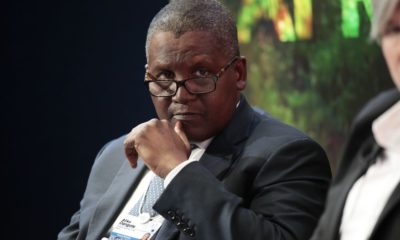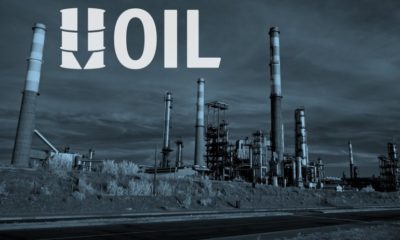Devakumar Edwin, Vice President of Oil and Gas at Dangote Industries Limited (DIL), has accused International Oil Companies (IOCs) in Nigeria of undermining the operations of Dangote Oil Refinery and Petrochemicals.
Edwin claims that these IOCs are deliberately obstructing the refinery’s efforts to purchase local crude oil by inflating prices above market rates, compelling the refinery to import crude from as far afield as the United States at significant additional costs.
Speaking at a one-day training programme for Energy Editors organized by the Dangote Group, Edwin expressed his frustration over the challenges faced by the refinery.
“While the Nigerian Upstream Petroleum Regulatory Commission (NUPRC) is trying their best to allocate crude to us, the IOCs are deliberately frustrating our efforts to buy local crude. They are either asking for an excessive premium or claiming crude is unavailable. At one point, we paid $6 above the market price, forcing us to reduce output and import crude, increasing our production costs,” Edwin lamented.
The refinery, which began production recently, has exported over 3.5 billion liters of fuel, representing 90% of its output.
However, Edwin warned that the IOCs seem intent on ensuring that Nigeria remains dependent on imported refined petroleum products by exporting raw materials to their home countries and re-importing the refined products, thereby creating employment and wealth abroad while Nigeria grapples with unemployment and economic challenges.
Edwin also criticized the Nigerian Midstream and Downstream Petroleum Regulatory Authority (NMDPRA) for indiscriminately issuing licenses to importers, leading to an influx of substandard, high-sulfur diesel and other refined products into Nigeria.
“Despite our compliance with ECOWAS regulations and standards, dirty diesel from Russia is being dumped into the Nigerian market. This has serious health implications for Nigerians,” he stated.
In recent months, reports from Agence-France Presse highlighted the detrimental impact of these imports, with high-sulfur fuels linked to carcinogenic effects.
European countries like Belgium and the Netherlands have already banned the export of such fuels to West Africa, citing their harmful impact on air quality and public health.
Edwin urged the Nigerian government and regulators to provide necessary support to ensure the refinery’s success.
“The Federal Government issued 25 licenses to build refineries, and we are the only one that delivered on our promise. We deserve every support from the government to create jobs and prosperity for the nation,” he asserted.
He also appealed to the National Assembly to expedite the implementation of the Petroleum Industry Act (PIA) to safeguard Nigeria’s interests and ensure that the country’s refining capacity is fully utilized.
“Ghana has banned the importation of highly contaminated diesel and petrol into their country through legislation. It is regrettable that, in Nigeria, import licenses are granted despite knowing that we have the capacity to produce nearly double the amount of products needed domestically and export the surplus,” Edwin concluded.
The Dangote Refinery’s predicament underscores the broader challenges facing Nigeria’s energy sector, where regulatory and market dynamics continue to pose significant hurdles for local enterprises striving to boost domestic production and reduce dependence on imports.


 Education4 weeks ago
Education4 weeks ago


 News3 weeks ago
News3 weeks ago


 Business3 weeks ago
Business3 weeks ago


 Technology3 weeks ago
Technology3 weeks ago


 Investment4 weeks ago
Investment4 weeks ago
 Investment3 weeks ago
Investment3 weeks ago
 Telecommunications4 weeks ago
Telecommunications4 weeks ago


 Banking Sector3 weeks ago
Banking Sector3 weeks ago
















